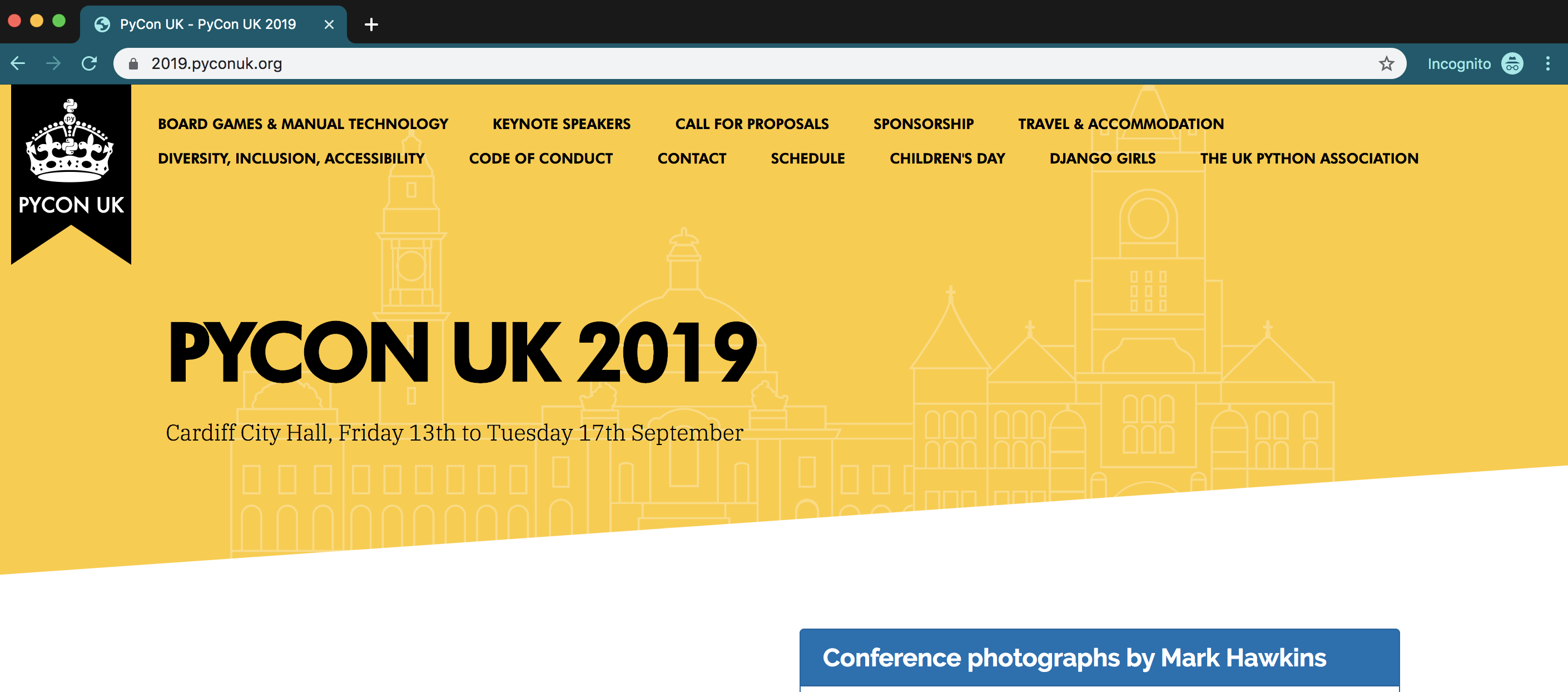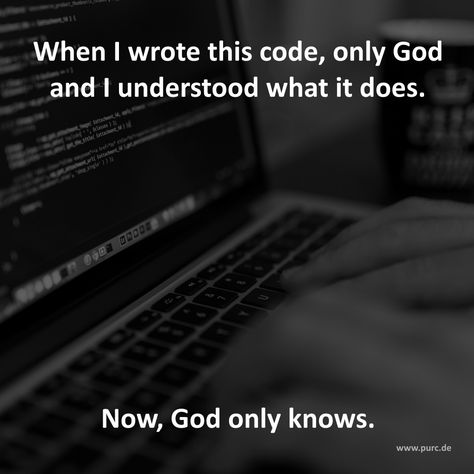Group meeting talk¶
Yi Liu, 24 September 2019
- PyCon UK 2019, 13 - 17 September, Cardiff
- Current NLP efforts
PyCon UK 2019¶

Home page: https://2019.pyconuk.org
PyCon UK
- Annually in Cardiff around September
- Features both introductory and advanced talks
- Data science, web development, Python language, MicroPython, misc.
- 4 days packed with talks + 1 day on sprints (hackathons)
- type of talks:
- Workshops: 1.5 / 3 hours
- Talks: 30 mins
- Lightning talks: 5 mins
Themes¶
https://pretalx.com/pyconuk-2019/schedule/
- data science:
- pandas, scikit-learn, tf-keras, pytorch
- statistics, machine learning, NLP
- web development:
- async io
- django, flask, fastapi, etc.
- building APIs
- Python:
- coding styles, typing, packaging, testing, etc.
Workshops¶
Demystifying Neural Networks, Michal Grochmal¶
https://github.com/grochmal/nnag
- A workshop on building neural networks from scratch
- Use
numpyandautogradto disseminate inner workings ofpytorchneural net modules
What are they talking about? Mining topics in documents with topic modelling and Python, Marco Bonzanini¶
https://github.com/bonzanini/topic-modelling
- NLTK and Gensim
- Common strategies in preprocessing text data
- Latent Dirichlet Allocation modelling and visualisation
Plug & train: flexible customisation and extension of python's deep learning frameworks, Jan Freyberg and Isobel Weinberg¶
https://github.com/janfreyberg/pycon-tutorial-2019
- Writing custom neural network layers on pytorch and keras
- gradient reversal
- residual layers (adding input to output) to overcome "vanishing gradient problem"
- using entire pretrained models as layers
Talks¶
Writing micro-services in Python... Sure! But which framework?, Emma Delescolle¶
- Comparisons of python frameworks for writing microservices and APIs, on various aspects
- Django REST Framework: all batteries included, heavy weight
- flask: minimalistic but relies on the dev team to assemble things
- fastapi: just works, but lacks documentation
- pyramid
Static Typing in Python, Dustin Ingram¶
- history of introducing typing to python3
- static type analysis libraries in python
python3 type annotation (Note: This is my code)
def get_encode(
text_list: List[str], model_name: str, url: str
) -> List[List[float]]:
payload = {"text_list": text_list, "model_name": model_name}
r = requests.post(f"{url}/encode", data=json.dumps(payload))
res = r.json()["embeddings"]
return res
mypy
# A function with wrong types
def foobar(x: str) -> str:
y = x + 1
return 1
# Static type analysis with mypy
mypy $(find . | grep "\.py$")
funcs/funcs.py:42: error: Unsupported operand types for + ("str" and "int")
funcs/funcs.py:43: error: Incompatible return value type (got "int", expected "str")
Code Styles Aren’t Black and White, Mika Naylor¶
- PEP 8 (python style guide) https://www.python.org/dev/peps/pep-0008/
- (For R, there are the tidyverse style and some others)
- Code styles:
- Indentation: tab? 2 spaces? 4 spaces?
- Length of a line?
- Readability matters
- Have a consistent code style for collaborated projects
- black is an opinionated code formatter to auto format your codebase so you don't have to (on your own, configure editors & IDEs etc)
# in:
def very_important_function(template: str, *variables, file: os.PathLike, engine: str, header: bool = True, debug: bool = False):
"""Applies `variables` to the `template` and writes to `file`."""
with open(file, 'w') as f:
...
# out:
def very_important_function(
template: str,
*variables,
file: os.PathLike,
engine: str,
header: bool = True,
debug: bool = False,
):
"""Applies `variables` to the `template` and writes to `file`."""
with open(file, "w") as f:
...
Code styles aren't black and white.
They should all be black. :)

NLP efforts¶
Natural language processing¶
Over its history NLP has progressed from pure linguistic models to statistical/machine learning models.
word2vec(Mikolov et al., 2013) is among the first batch of models that uses neural networks to encode texts into high-dimensional embedding vectors.
Neural network models start to show advantages over other methods due to its advantages in learning unstructured information.
The current state-of-the-art models are "transformer" models
- BERT (Bidirectional Encoder representation from Transformers, Devlin et al., 2019)
- GPT / GPT-2
- RoBERTa
- DistilBERT
A two-stage approach:
- Pretraining: pretrain models using general-purpose tasks that are extremely time consuming
- Finetuning: finetune pretrained models over downstream tasks
Transformer-related NLP ecosystems are starting to mature in recent months for us to use!
The medium-long-term goal is to use text embeddings generated from various state-of-the-art algorithms and models for various downstream tasks.
- Comparing similarity of concepts: "body mass index" versus "body weight"
- Name entity recognition: literature mining
- Question answering: fact checker
The current efforts are still on building infrastructures and understanding various frameworks and ecosystems.
Similarity in text embedding vectors is not a silver bullet¶
import requests
url = "http://jojo.epi.bris.ac.uk:8560"
text_1 = "I love cats"
text_2 = "I hate cats"
model_name = "biobert_v1.1_pubmed"
payload = {
"text_1": text_1,
"text_2": text_2,
"model_name": model_name,
}
r = requests.get(f"{url}/cosine_similarity", params=payload)
# text_1 = "I love cats"
# text_2 = "I hate cats"
res = r.json()
res
{'cosine_similarity': 0.9612499346597072}